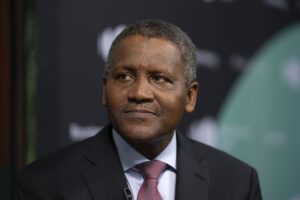Jet A1 fuel crisis: FG to sustain investment in aviation sector
By Uthman Salami
The Federal Government has assured Nigerians that sustainable investment efforts will be channelled into the development of the Aviation sector despite the crisis the industry is facing over the Aviation fuel crisis.
While assuring sustainable investments in aviation security and safety, the President, Muhammadu Buhari said that more investments would be deployed to the provision of infrastructure and facilities for safe, secure, environmentally friendly, and sustainable civil aviation.
The President stated this on Tuesday when he received the Secretary-General of the International Civil Aviation Organization (ICAO), Mr. Juan Carlos Salazar, at the State House.
“Nigeria will support the ideals and aspirations of ICAO and the achievement of its strategic objectives, in collaboration with the other Member States of the Organization, according to the President,” he said.
“Nigeria became a member of the ICAO Council in 1962, and since then, it has continued to make valuable contributions to the Council’s work and its activities.
“It is pertinent to also mention that Nigeria has been playing a key role in supporting the implementation of ICAO Policies and Programmes internationally, and particularly in the African region.
“To this end, Nigeria has ratified international air law instruments like the Montreal Protocol and amendments to some articles of the Chicago Convention. Nigeria is also championing the cause of Aviation safety, security, and facilitation in Africa.”
The President told the ICAO delegation that he had approved the establishment of Aerospace University in Abuja to cater to research and development as well as provide manpower for the industry.
“In this regard, Nigeria is looking forward to the continued support of ICAO under its ‘No Country Left Behind’ initiative,” he added.
The Federal Government has established independent agencies in order to enhance aviation safety and security while ensuring effective and efficient provision and management of infrastructure in all aspects of the industry.
“These include the Nigerian Civil Aviation Authority for safety and economic oversight of the industry; the Nigerian Airspace Management Agency for air traffic services; the Federal Airports Authority of Nigeria for management of Government-owned airports; the Nigerian Meteorological Agency for meteorological services; and the Nigerian College of Aviation Technology, the nation’s main aviation training organization, established in 1964 in collaboration with ICAO and the United Nations Development Programme.
“Nigeria is fully committed to working with other States and supporting the implementation of the Global Aviation Safety Plan, the Global Air Navigation Plan, as well as the Global Aviation Security Plan,” the President said.
As part of its support, President Buhari said Nigeria, over time, seconded auditors to support various ICAO programmes in the areas of safety and security.
“We have also contributed experts on various ICAO technical panels, commissions, and working groups.
“The Government of Nigeria has adopted a civil aviation policy, which is centered on liberalisation and Public-Private-Partnerships Initiative. These have resulted in huge investments in the nation’s airport infrastructure and services, increased capacity utilization, and a phenomenal increase in the number of domestic operators. Indeed, the domestic and international traffic has experienced tremendous growth since our assumption of office in 2015.
“Nigeria is the headquarters of the Regional Safety Oversight Organisation, the Banjul Accord Group Aviation Safety Oversight Organization and also, a major contributor and participant in the Regional Accident Investigation Agency, the Banjul Accord Group Accident Investigation Agency,” he added.
Recently, according to the President, Nigeria made a robust donation to the ICAO voluntary Air Transport Fund in order to be part of the Global efforts for recovery from the COVID-19 crisis.
“We have also made a significant financial contribution to the Safety and Human Resource Development Funds, in addition to hosting several ICAO meetings and regional workshops, including the widely acclaimed successful third ICAO World Aviation Forum, as well as several other workshops on safety oversight,” he said.
Also speaking at the event, Minister of Aviation, Hadi Abubakar Sirika, commended President Buhari for the giant strides taken under his administration in the areas of aviation safety, security, and development.
“Our profile improved significantly during your tenure, Mr. President. Passengers rose from 8 million to 18 million in four years, while security and safety also went up significantly,” he said.
The ICAO Secretary General lauded what he calls “the leadership role Nigeria plays in civil aviation in Africa,” saying the country’s record is one of the most impressive in the world.
“The number of airports have doubled, and passengers are growing in spite of COVID-19. The record of safety is the most important performance indicator of all. I recognize the excellent work by your government to maintain high standards, in line with international best practices,” Salazar said.
Stressing that it’s important to maintain the track record, the ICAO scribe stressed that there was no end line in civil aviation, “we keep chasing targets that go on and on.”
He urged President Buhari to sustain the support being given to the sector, to attract further investment, tourism, and continued growth.
Recall that Aviation fuel had crippled the sector as flights were cancelled and operators had threatened to shut down domestic operations which promptly led to the intervention of federal government.
Also, on Monday, the AON, in a statement, explained that the scarcity was impacting operations and could lead to rescheduling or cancellations, as the case may be.
“The Airline Operators of Nigeria (AON) wish to alert the public of impending disruptions to scheduled flight operations of members of the association. This development is being forced on members by the growing scarcity of aviation fuel, popularly known as Jet-A1.
“The scarcity is impacting negatively on the seamless conduct of air transport operations and would lead to flight rescheduling, and/or cancellations.
“However, the association and its members are working very hard, and in alliance with product marketers, government and relevant stakeholders to ensure availability and proper pricing of aviation fuel in the country,” the statement, signed by its spokesman, Professor Obiora.
While speaking exclusively with the International Centre for Investigative Reporting (ICIR) on the agreement between the operators in aviation sector and the federal government on the provision of aviation fuel at stipulated prices, the Chief Executive Officer of the Major Oil Marketers Association of Nigeria (MOMAN), Clement Isong said that two shipments recently came into the country at N332.6 and N362 per litre respectively.
He added that the local logistics charges, inclusive of movement from a depot, transportation and charges to the Nigeria Civil Aviation Authority (NCAA), took the price of the one imported at N332.6 to N480 per litre. He stressed that it was only one firm that had this consignment and the next one would sell for higher than N480.
“One company was able to sell that product imported at N332.6 for N480 per litre after all the handling charges. It still has six million of that product left. That six million is what is selling at N480 per litre Apart from that one, another was brought in by the NNPC, which has been sold to other people, but not to the first group of people (aviation operators). The handling costs and logistics costs were higher, and it is selling between N540 and N550 per litre in Lagos.”
Speaking further with ICIR, he said on the energy crisis, he said, “The CBN governor said because of the oil theft, he does not have enough dollars to give to people. If you get your dollar, you have to buy at the black market rate. As long as that continues, there would not be enough forex and anything you buy with forex would be expensive. We all have to decide whether we want to fly or go by road.
“The airlines cannot allow the government to look after them, they would have to increase their price at some time or some people may have to reconsider air travel. Whose fault is it? It is what it is. There is simply not enough forex in the country. It is either there is no product or expensive products by expensive forex. Government cannot bear the cost when it doesn’t have the money anymore,” he explained.




